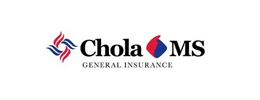Last updated on: September 19, 2025
OPD coverage in health insurance is a type of policy that covers outpatient department expenses, meaning it takes care of medical visit costs incurred without being admitted to the hospital. A common pain point with regular health insurance is that it usually doesn’t include these everyday medical visits, leaving people to pay out-of-pocket for doctor consultations, diagnostic tests, and minor procedures. The solution with OPD coverage is that it helps cover these expenses, providing a financial cushion for visits to the doctor like when you catch a cold or need a prescription refill. It reduces the burden of paying for routine health check-ups and ensures more comprehensive health protection without the added stress of unexpected small medical bills.
Indian health insurance has changed a great deal over the past few years, more so by 2025. People no longer look forward to hospitalisation issues. They desire coverage of the day to day healthcare costs as well. It is then that the OPD coverage in health insurance plays a prominent role. We will also get to know what OPD coverage provides, its advantages, its characteristics, major distinctions, which personages should prefer it and many others in this article. As well we will explain everything using simple language and practical examples to the families and individuals who seek the best health plans.
Outpatient Department is called OPD. In health insurance OPD coverage refers to the fact that your health plan will pay the bills when you have to be diagnosed but you do not have to be hospitalised. Rather, you just go to see a doctor or a clinic, receive a consultation, diagnosis, minor treatment and/or even medications, and leave the same day.
These are all called “outpatient” services. Therefore, OPD coverage assists you in carrying the costs of meeting your daily, routine medical expenses such as visiting a doctor, diagnostic blood tests, purchasing cost of prescribed medications and so on.
With time, Indians have begun going to doctors more frequently because of simple illnesses, preventive check-ups, physiotherapy or just simple consultations. The vast majority of standard health insurance, however, does not cover expenses in case you are admitted more than 24 hours.
But the reality of the spending in the field of medicine is usually on frequent visits to the OPD and not on hospitalization particularly on middle-income families. That is why most of the insurers by 2025 are already providing superior OPD insurance plans.
Did You Know?:
Experts in this industry described how OPD costs make up almost 60 per cent of the annual healthcare expenses of an average Indian family, in the urban set up.
In a health policy, OPD cover implies that the policyholder pays some or all costs of specified outpatient treatment and visitation. These lists can vary between each insurer and even between different policies.
Reimbursement: This is the process where you give your insurer bills and prescriptions after meeting a doctor. They verify your case and reimburse you the agreed value.
Cashless OPD: Most of the major cities have scheduled cashless OPD. It implies that you will be able to go to a network clinic or pharmacy and present your e-card to receive medicines or consultation without paying a penny in advance.
Expert Insight:
Most of the insurers have started engaging leading diagnostic chains and clinics. This assists policyholders in getting increased cashless OPD benefits and evading paperworks.
| Regular Health Policy | Health Policy with OPD Cover |
|---|---|
| Hospitalisation Cover | Yes |
| OPD Doctor Visits | No |
| Pharmacy/Meds Exp Expense Cover | No |
| Coverage/Lab Tests Diagnostics | No |
| Premium Cost | Lower |
| Higher (for added benefit) | |
| Who Needs it the Most | Low risk, uncommon hospitalization |
Did You Know?:
Consequently, in 2025, high OPD bills forced many corporates to add the OPD insurance as one of the default benefits in employee healthcare plans.
OPD benefit is normally a definite sum of money per year which is selected by you or permitted under the policy. In our example you may find such options as
Rs 5,000
Rs 10,000
Rs 15 K only per year.
Select depending on your family size, age and expenditure on OPD in the previous year.
For people whose yearly expenses on outpatient care (doctor visits, tests, and medicines) are more than the extra premium they pay for the OPD cover, it absolutely makes sense. A basic one might be sufficient to cover the needs of healthy young people that hardly ever visit hospitals or clinics.
Expert Tip:
Digital claims of OPD are also now offered in their mobile application by some of the most prominent insurers and, as a result, facilitate reimbursements much faster and in a paperless manner.
After few big private as well as PSU health insurance companies in India, OPD benefit is covered as add on or with their prime health plans. These are Star Health, ICICI Lombard, HDFC Ergo, Max Bupa, Care Health and others.
Did You Know?:
This is where new-age OPD policies are more valuable with provisions on e-card facilities, mobile-based claims, and annual discounts on preventative checkups to tech-savvy families.
Before, OPD cover used to be typically in the form of a top up. Today, OPD-specific plans are available including the OPD Care Plan, Digital OPD Protection, or Senior Citizen OPD Plan.
Floater plan implies that there is only one OPD limit per family that is usable by anyone. Personal plans impose a different limit on an individual and family floaters are affordable yet common.
Did you say, a lot of insurance companies, by twenty twenty-five, provide senior citizen health insurance in specifically designed coverage with OPD in view of the fact that they have more OPD admissions due to chronic conditions?
One can have OPD cover in both directions. You might include it to your current core coverage, or select an individual OPD oriented plan.
There is a possibility of certain surgical procedures and plans having a waiting list in OPD, though in most cases consultation with doctors is covered on the first day itself.
No, OPD claims are independent and tend to have no effect on your principle policy NCB.
| Comparison | Ordinary Health Insurance | With OPD Cover |
|---|---|---|
| Only covers | Hospitalisation | Hospital and Outpatient |
| Claims Process | It is frequently a cashless process on the hospital side | All cashless and/or reimbursement |
| Regular Use | For rare events (admission) | Used more frequently |
| Annual Cost | Cheaper | Expensive Only adds more events |
| Value | Value | Value |
Lots of insurers offer you online dashboard or app-based updates so that you can monitor the amount of OPD limit used and when the limit renews.
Expert’s Insight:
As the urban India grows in costs, a mix between hospital and robust OPD cover will be the norm among young working families and households above the age of 45 years, says Dr. Paramita Dasgupta, the most advanced health economist functioning in Mumbai.
OPD is short for Outpatient Department, which represents cases where medical treatment or consultation is not a case that needs immediate admission to the hospital. Insurance OPD cover implies that your insurance will take care of visits to the doctor, medications, and simple procedures that do not require any hospitalisation.
Yes, there are so many health insurance plans in 2025, which offer cashless OPD in the main cities when you use network clinics and pharmacies.
Some plans have dental and vision covers but do ensure to ask about policy details since they are usually an extra cover or premium cover.
OPD should be used during routine doctor consultations or non-hospital related treatment. Day care involves hospital procedure that requires fewer than 24 hours stay such as cataract.
Compare at fincover.com, view OPD limit, network clinics, exclusions and premium and then decide.
Typical consultations are normally payable and are accompanied with minimal waiting time, though some advanced OPD interventions may come with a policy applicable waiting time.
OPD coverage is now a better health cover that is very important to save your money and health in India by 2025. Go through the policy documents always and make a sound decision with respect to medical needs of your family.












How could we improve this article?
Written by Prem Anand, a content writer with over 10+ years of experience in the Banking, Financial Services, and Insurance sectors.
Prem Anand is a seasoned content writer with over 10+ years of experience in the Banking, Financial Services, and Insurance sectors. He has a strong command of industry-specific language and compliance regulations. He specializes in writing insightful blog posts, detailed articles, and content that educates and engages the Indian audience.
The content is prepared by thoroughly researching multiple trustworthy sources such as official websites, financial portals, customer reviews, policy documents and IRDAI guidelines. The goal is to bring accurate and reader-friendly insights.
This content is created to help readers make informed decisions. It aims to simplify complex insurance and finance topics so that you can understand your options clearly and take the right steps with confidence. Every article is written keeping transparency, clarity, and trust in mind.
Based on Google's Helpful Content System, this article emphasizes user value, transparency, and accuracy. It incorporates principles of E-E-A-T (Experience, Expertise, Authoritativeness, Trustworthiness).